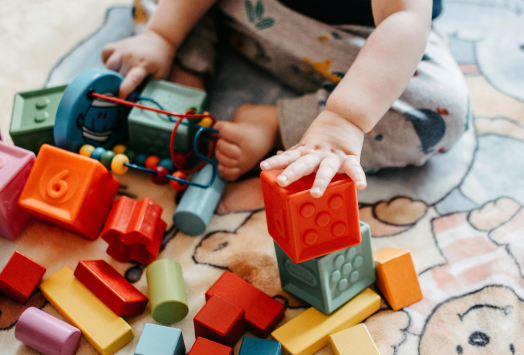There are so many factors that impact sibling rivalry and relationships: age, birth order, family dynamics, neurodivergence, parental attention, parent dynamics, the list goes on. But, research shows that having positive experiences together, warm and happy memories stored in each child’s “relationship bank account” is what matters. That is what will incentivize siblings to work things out.
How to increase these positive experiences among siblings:
- Group activities: Come up with some group activities that can help with bonding. For example, making dinner for the parents, sibling game night, a family collage/mural, sibling movie night, spa day, working together on a shared interest (like a large LEGO model), etc.
- Encourage teamwork: Give them a special privilege to work toward as a team - maybe it’s a special meal or a day trip somewhere exciting.
- 1-on-1 time: Ensure quality 1-on-1 time with each of them so no sibling feels left out from your attention.
- Repair: Include opportunities for repair so things don’t fester.
However, despite all of your best efforts to try to line up moments of sibling partnership and joy, fighting, big and small, is certain to take place. It’s the nature of things. So…what can you do?

Understand how and when to get involved
The bigger the disagreement or fight, the more involved you should be.
- For little arguments and tussles: Let them sort it out. They need the practice.
- With medium skirmishes: Get in and mediate and support as much as needed. Remind them of family rules and previously established outcomes.
- For those huge violent explosions: Help them to quickly separate from each other to cool down (“You, let’s go, upstairs with me to cool down, and you go downstairs with Dad, right now”) and reflect together later.
How to mediate fights and reflect with your children
How do parents reflect with kids about fighting? How do they mediate? What does that mean? Here are some tips to help you manage the reflection aspect of sibling fights.
- Scaffold their language: Encourage and support the use of words by using effective words yourself. Acknowledge their feelings and/or encourage them to express them creatively. This can be getting them to share their feelings verbally or through more creative outlets like helping one write a letter to the other or draw a picture of how they felt when they fought.
- Mediate and actively listen: Just like the children, you should be trying to better understand. In trying to understand each side, you are modeling for each of them. Get them to listen to each other by explaining to you what happened. Then you reflect, out loud, their perspective. For example:
- ~Blow the whistle so to speak, to get them to stop fighting, but right after that, drop the referee act and mediate.
- ~Get down to their level, physically, to help but don’t take sides. Be a calming mediator. It’s not about determining who was right or wrong or who was being unfair.
- ~You might say: “Wait, wait, wait. Stop. STOP. What’s happening here?” (calmly now) “Hang on. OK, so…right..OK, is that what you felt happened? Oh, I see, OK, wait, you disagree, you thought it was your turn? Hmmm…how’d that happen? Oh, I see. OK, tell him that…You think he should have to ask first. What do you think? OK, let's say that next time then…Does that feel OK? Does that sit right with you? OK, and you? OK.”
- Avoid the labeling theory: Don’t let one child get locked in a role. For example, “the instigator”, “the tattle tale”, or “the turn stealer”. If you find that one child is always playing the same role, find a creative way out of it by not continuing the labeling loop.
- ~Stop saying things like: “Be nice to your brother” or “Why are you bothering him again?” or “Why do you always take his turn?”.
- ~Flip it on its head and find a new response, one that doesn’t keep the child locked in his role. Find a way to change that dynamic.
- ~For example, you can reframe the situation to avoid labeling the children, so instead of “That’s your brother’s game, you need to give it back to him. You can’t just take his things all the time” Try: “Your brother wants his game back.”
- ~Or, you can highlight the child’s occasional ability to be exactly the opposite of what he or she is exhibiting. So instead of, “Don’t be inflexible. Give him a turn for once.” Try saying to the other sibling: “Why don’t you try asking for a turn in a different way. I’ve seen your sibling be pretty flexible this week, maybe you’ll be pleasantly surprised.”

By having clear family rules, encouraging and modeling effective communication, and trying to regulate yourself so you can mediate effectively and creatively you will be better able to diffuse bickering… AND, more importantly, you will be teaching your kids those life-long skills of problem solving, perspective taking, and social communication. And remember to leverage that fun! Oxytocin inducing activities like laughing and tickling, outdoor play, and dance parties - use can really be used to your advantage by getting them both in on the fun together to keep things feeling positive overall.

















